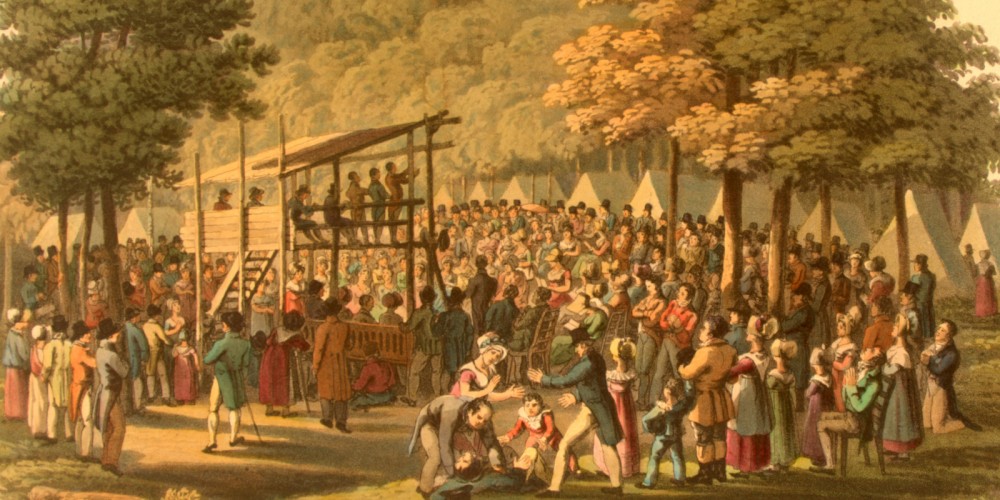
“Camp Meeting of the Methodists in N. America,” 1819, Library of Congress
The early nineteenth century was a period of immense change in the United States. Economic, political, demographic, and territorial transformations radically altered how Americans thought about themselves, their communities, and the rapidly expanding nation. It was a period of great optimism, with the possibilities of free will and self-governance infusing everything from religion to politics. Yet it was also a period of great discord, as the benefits of industrialization and democratization increasingly accrued along starkly uneven lines of gender, race, and class. Westward expansion distanced urban dwellers from frontier settlers more than ever before, even as the technological innovations of industrialization—like the telegraph and railroads—offered exciting new ways to maintain communication. The spread of democracy opened the franchise to nearly all white men, but urbanization and a dramatic influx of European migration increased social tensions and class divides.
Americans looked on these changes with a mixture of enthusiasm and suspicion, wondering how the moral fabric of the new nation would hold up to emerging social challenges. Increasingly, many turned to two powerful new tools to help understand and cope with the various transformations: spiritual revivalism and social reform. Reacting to the rationalism of the eighteenth-century Enlightenment, the religious revivals of the Second Great Awakening reignited Protestant spirituality during the early nineteenth century. The revivals incorporated worshippers into an expansive religious community that crisscrossed all regions of the United States and armed them with a potent evangelical mission. Emerging directly out of this new spiritual network, social reformism further encouraged evangelical Christians to perfect society by alleviating social ills and eradicating moral vice. Tackling numerous issues, including alcoholism, slavery, and the inequality of women, reformers worked tirelessly to remake the world around them. While not all these initiatives were successful, the zeal of reform and the spiritual rejuvenation that inspired it were key facets of antebellum life and society.
Candela Citations
- American Yawp. Located at: http://www.americanyawp.com/index.html. Project: American Yawp. License: CC BY-SA: Attribution-ShareAlike